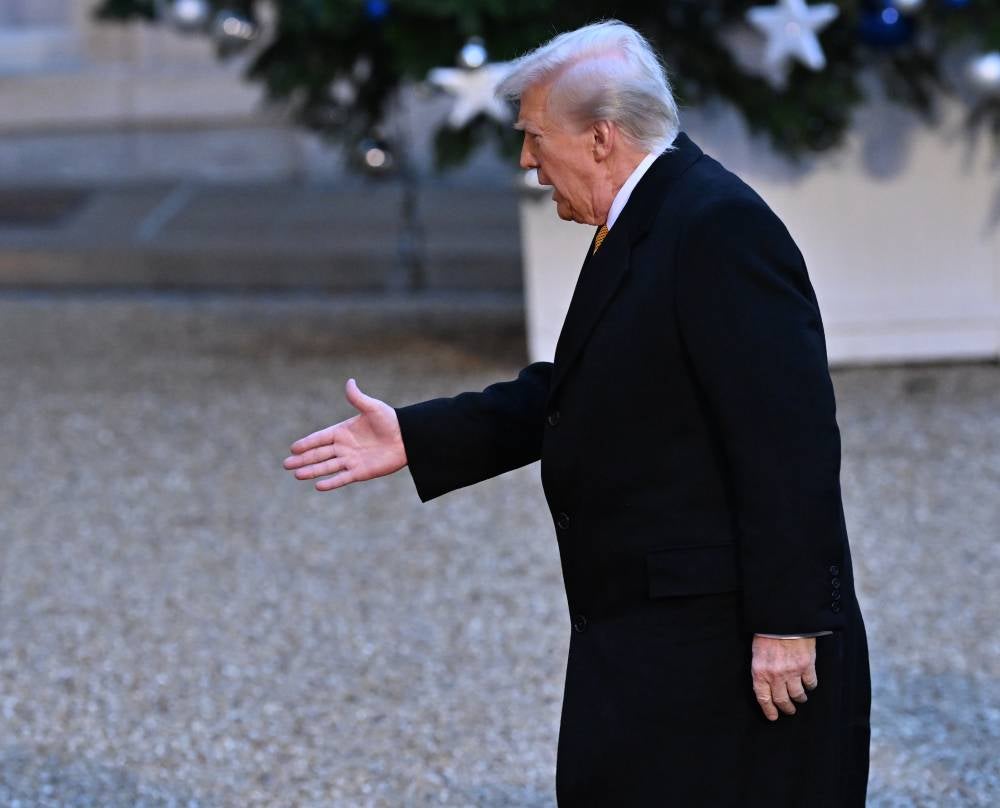‘We can’t buckle from fear’: US Muslim scholar Omar Suleiman on new Trump era
Muslims in the US are willing to engage in the US political process ‘more meaningfully now and not within the confines of the two major political platforms,’ says Suleiman.

ISTANBUL - With Donald Trump set for a second stint in the White House, concerns are growing among Muslim Americans about the unpredictability of his leadership and its implications for their community.
His recent Cabinet appointments signal a potential shift toward more aggressive policies, featuring figures widely regarded as war hawks or neoconservatives. For many in the Muslim community, this raises fears of renewed challenges at home and abroad.
During Trump’s first term, his administration implemented the infamous “Muslim ban,” barring entry to the US for nationals of several predominantly Muslim countries. Such actions, combined with his rhetoric, left lasting scars within the community.
Omar Suleiman, a prominent Muslim American scholar and activist, expressed apprehension about what another Trump presidency could bring for the community.
“The thing about Donald Trump is that he’s predictably unpredictable,” Suleiman told Anadolu at a recent event in Istanbul, while voicing concern over Trump’s new Cabinet picks.
“It is a worse Cabinet than his first. It promises only further destruction,” he said, citing the team’s hawkish tendencies and the likelihood of heightened challenges for the Muslim community.
Suleiman emphasised the need for vigilance, warning that these appointments could have both domestic and international repercussions.
“We have to be ready for them. We can’t buckle from fear,” he urged.
While Suleiman held out faint hope that Trump might govern less harshly than anticipated, he advised against relying on such a surprise. “We cannot depend upon that surprise,” he stated.
‘Muslim community has developed a sense of self-worth’
In a surprising twist, some Muslim leaders in Michigan endorsed Trump before the Nov 5 elections, prompting discussions about political allegiances within the community.
Trump campaigned on promises to bring peace to the Middle East, particularly focusing on the situation in Gaza, where Israel’s genocide of Palestinians is continuing into a second devastating year.
However, Suleiman expressed skepticism regarding Trump’s assurances.
“He has promised to end the war by letting (Israeli Prime Minister Benjamin) Netanyahu finish them all (Palestinians). So, if you listen to Donald Trump speak, he uses the word ‘Palestinian’ as a pejorative, as an insult,” he said.
Suleiman pointed out that Trump has been criticizing the Biden administration for being slow in delivering weapons to Israel, which shows his inclinations and how he is likely to give Netanyahu a free hand.
Meanwhile, Democrats face their own share of criticism from Muslim Americans, particularly for their staunch support of Israel and its genocide in Gaza.
“The Democratic Party has itself to blame for the alienation of Muslim voters and voters of conscience,” said Suleiman.
He said several Muslim scholars in the US viewed the 2024 election as a choice between “two monstrous evils,” leading many in the community to support third-party candidates.
This protest vote was to reject both the Democrats, who have fueled the Gaza genocide, and Trump, who “promises to further the genocide,” said Suleiman.
“As Muslims, we were not going to vote for a party that was actively present in a genocide,” he declared.
This sentiment was reflected in the strong showing of Green Party candidate Jill Stein among Muslim voters.
According to an exit poll by the Council on American-Islamic Relations (CAIR), 53.2 per cent of Muslim voters supported Stein, while Trump received 21.4 per cent of the Muslim vote, and Vice President Kamala Harris secured 20.3 per cent.
Support for Stein was even more pronounced in Michigan, where 59 per cent of 502 Muslim respondents backed her, compared to 22 per cent for Trump and 14 per cent for Harris.
“The results speak for themselves, and if the Democratic Party does not have a rude awakening within itself, then it’s going to face the same thing over and over and over,” said Suleiman.
“I think that the Muslim community has developed a sense of self-worth and security to no longer allow fearmongering to cause it to vote for those who are active in the worst human rights atrocity in our lifetimes.”
Muslims disillusioned, not disengaged
Despite their underrepresentation in government leadership and policy, Muslim Americans are demonstrating increased political engagement and influence, which could shape future elections, according to Suleiman.
“Muslims are not represented, neither by face nor by policy, in the US government, but I hope that with the power that the Muslim vote wields in places like Michigan, parties and candidates will have to take the community into consideration... far more seriously in the future,” he said.
Suleiman also highlighted the impact of the Gaza war in energising political participation within the Muslim community.
“Muslims were disillusioned from the two major political parties, but Muslims were not disillusioned from the political process,” he said.
“I would assume that more Muslims probably voted this time than before.”
This growing engagement is not limited to the confines of the Democratic or Republican platforms, he added.
“I think that Muslims are probably willing to engage in the process, but engage it more meaningfully now and not within the confines of the two major political platforms,” Suleiman concluded. - ANADOLU AGENCY











